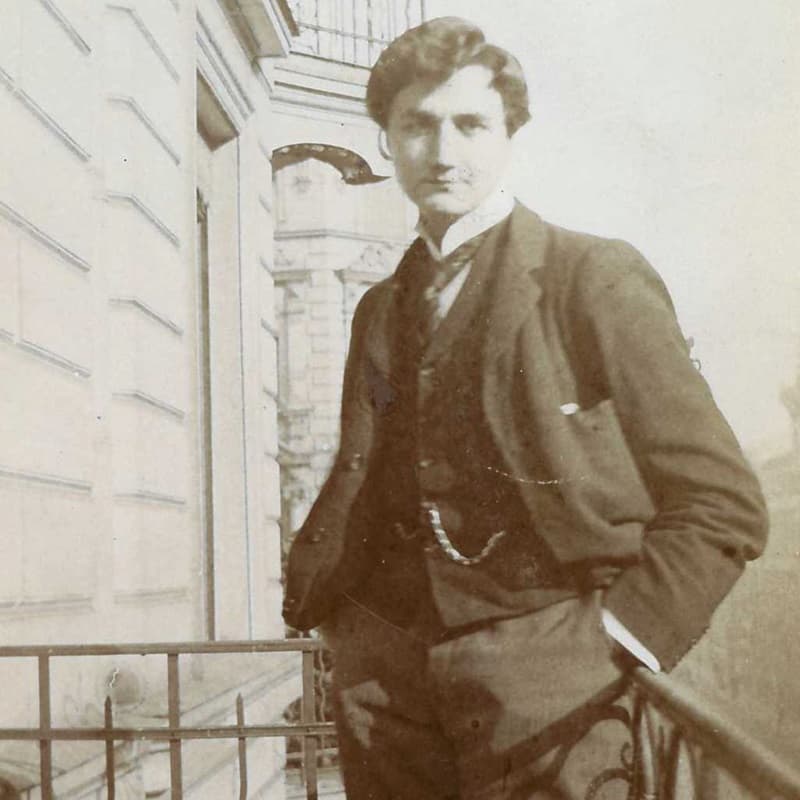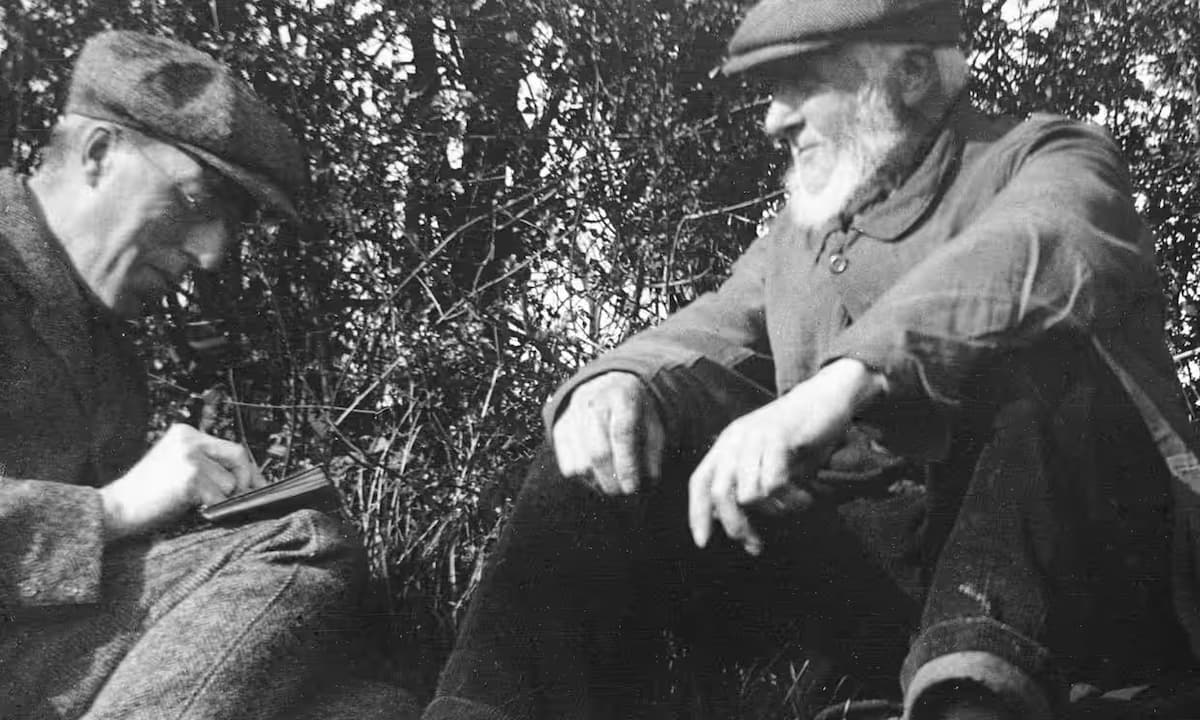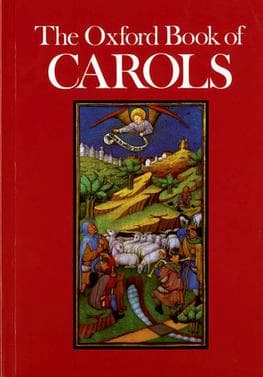In a longer take on the traditional carol, English composer Ralph Vaughan Williams made a ‘fantasia’ on three carols from southern England to create an atmospheric work for baritone, chorus, and orchestra.

Ralph Vaughan Williams in 1898 © Wikipedia
Given its premiere at the Three Choirs Festival at Hereford Cathedral in September 1912, the Fantasia has remained quite popular.
The work is in three continuous sections, each of which features one carol:
I. The truth sent from above
II. Come all you worthy gentlemen
III. On Christmas night all Christians sing
The first carol, ‘The Truth Sent from Above’, comes from the English counties of Shropshire and Herefordshire. An 8-stanza version of the carol was collected by the folksong specialist Cecil Sharp that is known as the Shropshire Carol. Vaughan Williams collected a different 4-verse version in Herefordshire in 1909, and this carol has come to be known as the Herefordshire Carol. He published the first version of the carol in the Folk-Song Society Journal in 1909.
Ralph Vaughan Williams: Fantasia on Christmas Carols (Stephen Gadd, baritone; Guildford Choral Society; Royal Philharmonic Orchestra; Hilary Davan Wetton, cond.)
The carol tells of the life of man, from God’s creation of man in Paradise, their sin of eating the forbidden fruit, and how that affects us today.
1. This is the truth sent from above,
The truth of God, the God of love;
Therefore don’t turn me from your door,
But hearken all, both rich and poor.
2. The first thing, which I do relate,
That God at first did man create
The next thing, which to you I tell,
Woman was made with him to dwell.
3. Then after this, ‘twas God’s own choice
To place them both in Paradise,
There to remain from evil free
Except they ate of such a tree.
4. But they did eat, which was a sin,
And thus their ruin did begin;
Ruined themselves, both you and me,
And all of their posterity.
5. Thus we were heirs to endless woes,
Till God the Lord did interpose
For so a promise soon did run
That He’d redeem us with a Son.
The start and end of this first carol with a cello solo sets it off beautifully and emphasizes the seriousness of the story.

Cecil Sharp and Edwin Clay, Brailes, Warwickshire, circa 1900-1910 © The Guardian
The second carol, ‘Come All You Worthy Gentlemen’, known as the Somerset Carol, was also collected by Cecil Sharp. The singer, Mr Rapsey of Bridgwater, told Sharp that he had learned the carol from his mother, and he and other children would sing it in the streets of Bridgwater at Christmas time.
1. Come all you worthy gentlemen
That may be standing by.
Christ our blessed Saviour
Was born on Christmas day.
The Blessed Virgin Mary
Unto the Lord did say,
O we wish you the comfort and tidings of joy!
2. Christ our blessed Saviour
Now in the manger lay;
He’s lying in the manger,
While the oxen fed on hay.
The Blessed Virgin Mary
Unto the Lord did pray.
O we wish you the comfort and tidings of joy!
The text is very simple, rhyming in couplets, reflecting a country focus on the cattle and the hay, but with a cheering end to the verses.
The last carol, ‘On Christmas night all Christians sing’, is known as the Sussex Carol. This has a longer history than the other two, with the text first appearing in a book of poetry, Small Garland of Pious and Godly Songs, from 1684. It is not known if the author, Bishop Luke Wadding, wrote the words or wrote what he learned from another person. Both Cecil Sharp and Vaughan Williams heard it sung in Sussex in 1919 by Harriet Verrall in Sussex, hence the current name of the Sussex Carol. An earlier setting of the text was published in 1878, with a different melody and a different first line.
In his Fantasia, Vaughan Williams sets a mix of his original collection and some lines from both the 1684 version and the 1878 publication. He also added the final couplet.
On Christmas night all Christians sing
To hear the news the angels bring.
News of great joy, news of great mirth,
News of our merciful King’s birth.
When sin departs before thy grace,
Then life and health come in its place
Angels and men with joy may sing
All for to see the new-born King.
God bless the ruler of this house,
and long on may he reign.
Many happy Christmases he live to see again!
From out of darkness, we have light,
Which makes the angels sing this night.
“Glory to God and peace to men
Both now and evermore, Amen”.
God bless our generation who live both far and near
And we wish them a happy New Year.
Hidden in the orchestral setting are other Christmas carols, including short sections from The First Nowell. Another carol, ‘There is a fountain filled with blood,’ is given with the tune only and no words. Despite the horrific title, the carol is about redemption.

Cover of the Oxford Book of Carols (1984 edition), Oxford University Press © Wikipedia
One of the effects that Vaughan Williams used for the choir was to have them hum, usually on the syllable ‘u’ as in ‘but’, which gives the choir an unseen presence during the first baritone section and at the start of the third section.
Vaughan Williams loved carols and put both the Herefordshire Carol and the Sussex Carol in the Oxford Book of Carols in 1928. During WWI, the composer formed carol groups everywhere he went, always singing traditional English carols. In Fantasia, he uses the soloist and the chorus to create a unique sound, even for Christmas carols.
For more of the best in classical music, sign up for our E-Newsletter


